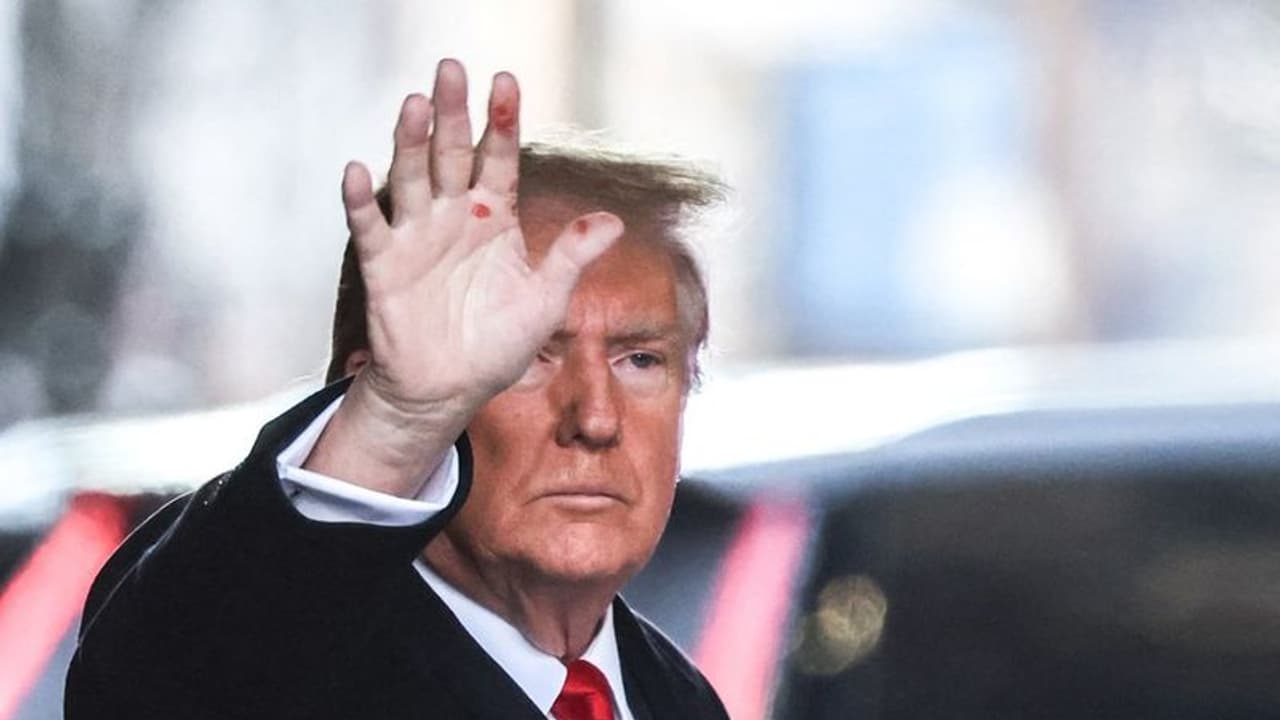A federal appeals court rejected Donald Trump's claim of immunity from prosecution for alleged criminal acts related to his efforts to overturn the 2020 election. The ruling, delivered by a three-judge panel, stated that Trump, as a private citizen, is not immune from prosecution for actions taken during his presidency.
In a significant legal blow to former President Donald Trump, a federal appeals court dismissed his claim of immunity from prosecution for alleged criminal acts during his tenure in the Oval Office. The ruling, handed down on Tuesday, rebuffed Trump's assertion that he was shielded from legal scrutiny for his role in attempting to overturn the 2020 election, which culminated in the storming of the Capitol on January 6.

Trump's legal team is expected to swiftly appeal the decision to the Supreme Court, seeking to halt the trial proceedings scheduled against him. The Supreme Court, which has been urged to expedite its review, granted Trump until February 12 to file his appeal before further actions are taken at the lower court level.
The three-judge panel of the U.S. Circuit Court of Appeals for the District of Columbia categorically dismissed Trump's argument of blanket immunity for former presidents, stating that Trump, as a private citizen, is subject to the same legal scrutiny as any other individual facing criminal charges. The ruling emphasized that any executive immunity Trump may have enjoyed during his presidency does not shield him from prosecution in this case.
This legal battle is just one of several criminal prosecutions looming over Trump, who remains a leading contender for the Republican presidential nomination in the upcoming election. Of particular concern is whether the trial can proceed before the election, with Special Counsel Jack Smith urging expedited proceedings to maintain the trial's timeline.
The charges against Trump, outlined in a four-count indictment in Washington, include conspiracy to defraud the U.S. and conspiracy to obstruct an official proceeding. Despite pleading not guilty, Trump's legal maneuvers, including invoking presidential immunity and constitutional grounds, were rejected by U.S. District Judge Tanya Chutkan in December.
Trump's defense team has cited a 1982 Supreme Court ruling upholding presidential immunity from civil lawsuits concerning actions within the scope of official duties. However, they conceded that a former president could face prosecution for unrelated conduct. Moreover, Trump contends that his impeachment acquittal should preclude criminal prosecution for the same actions.
Contrarily, Smith's team argued that no broad immunity exists shielding former presidents from criminal charges related to their time in office. They emphasized that attempts to subvert the democratic process cannot be considered official acts and that the Constitution does not preclude the prosecution of a president who has undergone unsuccessful impeachment proceedings.
